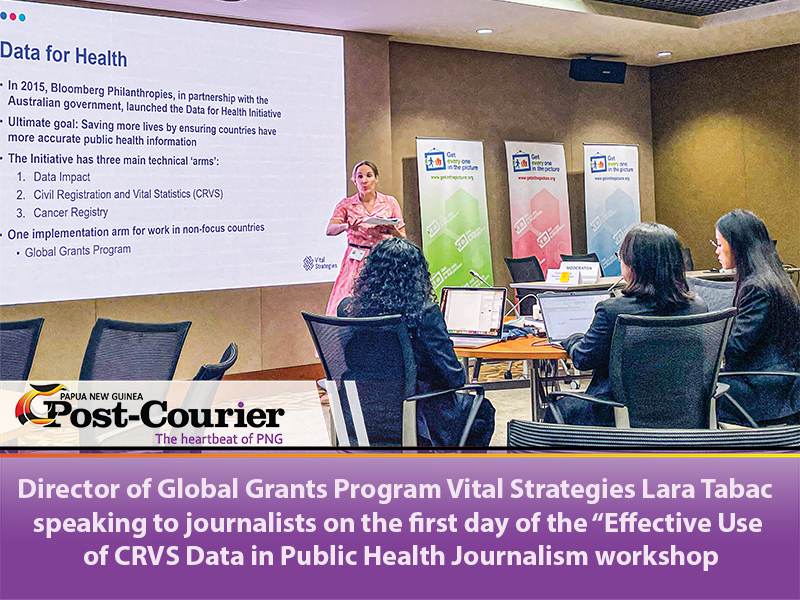USING Civil Registration and Vital Statistics data in Public Health Journalism is vital because many remain unregistered and more systems still need further investment to realise the vision of universal CRVS.
Director, Global Grants Program Vital Strategies Lara Tabac told journalists who were identified as an important voice in public health journalism in the Asia Pacific Region attended the workshop on Effective Use of CRVS Data in Public Health Journalism.
Representing the Pacific and Papua New Guinea was Post-Courier’s health journalist Grace Auka-Salmang who was amongst journalists from Asian countries who attended this workshop.
As part of the Third Ministerial Conference on CRVS in Asia and the Pacific held in Bangkok, Thailand last week, ESCAP, Vital Strategies and CDC Foundation, partners of the Bloomberg Philanthropies Data for Health Initiative hosted this workshop.
“CRVS data is a rich source of information that touches on many issues relevant to public health, including birth and death rates, cause of death information and government progress in meeting sustainable development goals,” she said.
The United Nations defines CRVS as the “continuous, permanent, compulsory and universal recording of the occurrence and characteristics of vital events of the population in accordance with the law”.
The typical actors in a CRVS system can include a mix of Civil Registration Authorities, the Ministries of Interior, Home Affairs, Justice, and Health, as well as National Statistical Offices and international development
Essentially, CRVS is about a person’s legal identity, including their right to recognition as a person before the law and their formal relationship with the State.
For example, a birth certificate provides individuals with documentary evidence proving their name, age, family relationships and nationality; documentation of which is important for accessing essential services like healthcare and education.
Legal identity through civil registration also implicates additional rights and activities such as political participation, recourse to justice, property ownership, formal employment, financial services and inheritance.
The workshop was designed for journalists to increase their capacity to use CRVS data to support and enrich their work. It focuses on identifying sources of CRVS data, strengthening skills to understand it, and translating relevant data into compelling stories.
